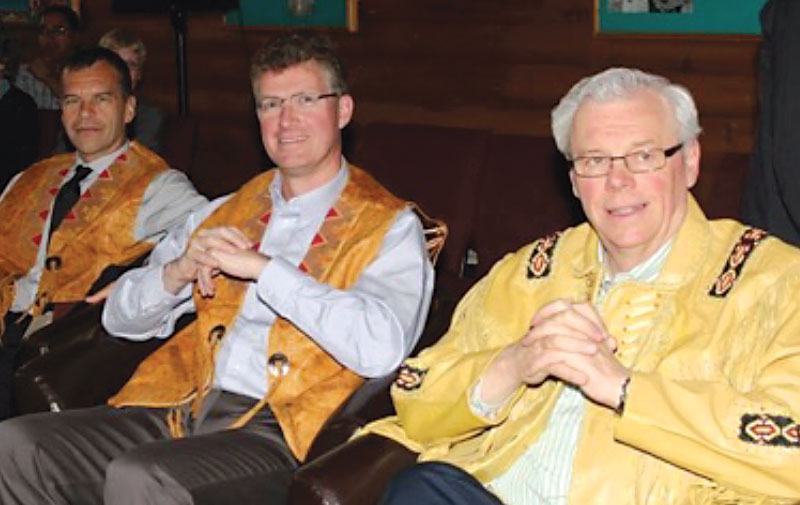June 2015 – Nelson House , Manitoba
Lowering the number of NCN youth in the provincial correction system and stopping the strain on courts and law enforcement are hot topics for not only NCN but also other First Nations and communities across Canada. The NCN Family and Community Wellness Centre’s CEO, Felix Walker saw first-hand the great response and interest from others across Canada while presenting at the Joint 2015 Gathering in Vancouver on November 17, 2015. The event was hosted by the BC Assembly of First Nations, First Nations Summit, Union of BC Indian Chiefs and Aboriginal Affairs and Northern Development and was attended by First Nations leaders from across the country.
The Wellness Centre, with the important wisdom and knowledge of elders, leaders and staff are working on a new community approach to handle youth crimes. The program is set to deal with the root causes of the over-representation of youth in the child welfare and criminal justice systems.
Walker said, “I am pleased with the interest and support we have had for managing minor youth crimes in our First Nation. Our overall goal at the Centre, since founded in 2001, is to reduce the negative effects on our youth, to achieve better lives for our Citizens and to improve overall community Mithwayawin (wellness).”
Mr. Walker added, “In addition to the Cree Court, the Integrated Service Delivery Model of the Centre is the new national standard. Our Circle of Care case management approach, Removal of the Parent and Trauma programming are also viewed and recognized as the national standard. NCN is really leading the way.”
The NCN Community Youth Cree Court idea is an alternative-based community model that will deal with minor youth crimes, keep more youth out of the child welfare system or foster care, and reduce the burden on Manitoba court systems. It will ultimately handle crimes directly in the community, reduce the chance of repeat youth offences and allow young adults and kids to contribute to their community and have productive lives. The program will also hold offenders accountable for their actions among peers and respected community members and Elders, while providing them the necessary services to reform and rehabilitate. This will all be done in the community, via a holistic approach to wellness.
The program will curb the trend in these youth becoming adult offenders and deter other children from getting involved in crime.
NCN is faced with the reality that crime rates over the past decade within Nelson House and other Indigenous communities and reserves are increasingly higher than the average national crime rates. This is often attributed to the low socio-economic status, high unemployment, poor housing , inadequate health care and lack of recreational opportunities or family and community supports.
The International Youth Survey found that over 37% of Indigenous youth reported having engaged in one or more delinquent behaviours in their lifetime. This involves crimes of violence, acts against property or the sale of drugs. Most youth crimes are committed between the ages of 12 and 17 with a frequency of minor property crimes followed distantly by violent crimes. The most common offences appearing before courts are theft, mischief, drug offences and common assault. Many of these crimes can be handled in the community with quicker outcomes and the use of local community services. This local approach benefits both the youth and the community by decreasing the reliance upon outside resources and decision-makers. The costs of dealing with youth crimes in the community are much lower than the costs of travelling to other centres or having the outside resources come to the community.
Walker noted, “The concept for the NCN Community Youth Cree Court began in 2010 and has operated several successful community mock trials between June 2013 and 2015. With appropriate funding and resources it is expected the program could soon be available in NCN. We hope to share our results and processes with other First Nations communities.”

